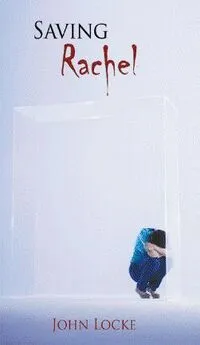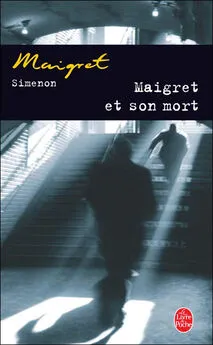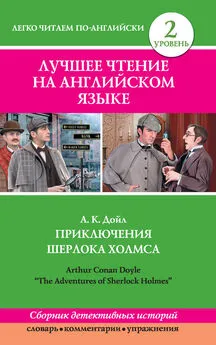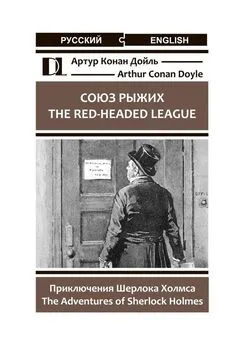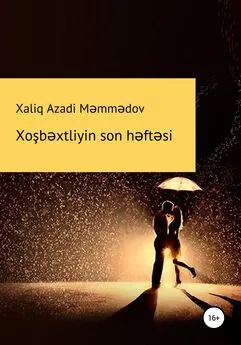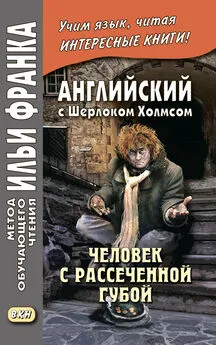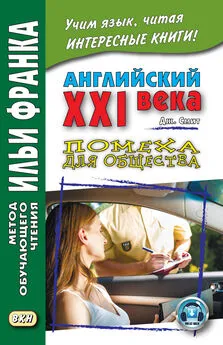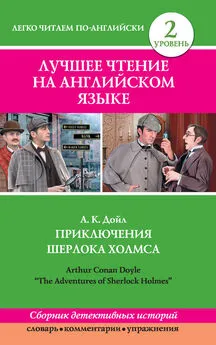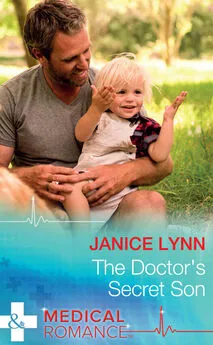John Lescroart - Son of Holmes
- Название:Son of Holmes
- Автор:
- Жанр:
- Издательство:New American Library
- Год:2003
- ISBN:9780451208750
- Рейтинг:
- Избранное:Добавить в избранное
-
Отзывы:
-
Ваша оценка:
John Lescroart - Son of Holmes краткое содержание
John Lescroart offers an engrossing historical mystery that takes us to a small French town in the dark days of World War I-where the rumor is that Auguste Lupa is the son of the greatest detective of all time. And his mysterious legacy may come to light as he attempts to solve the baffling murder of an intelligence agent...
Son of Holmes - читать онлайн бесплатно полную версию (весь текст целиком)
Интервал:
Закладка:
I sipped at my coffee. “Well, yes, but . . .”
“No. You just can’t tell. Take all this stuff about Marcel. Now, I’m sorry and all to see him dead, and I’m sorry for you because you were his friend, but how much did we know about him? Hell, I didn’t even know where he lived. What if, for example—and don’t get mad—he was having an affair with Tania, and you found out and killed him. Or if he had recently gambled everything on some adventure, and lost, and for that reason killed himself. No way to know. Or if he was a spy of some kind, like some of the others said, and the whole thing had nothing at all to do with him personally, though I myself don’t credit that one much. He just didn’t seem the cloak-and-dagger type. ’Course, there I go again doing what I’m yappin’ at you about. He didn’t seem the cloak-and-dagger type, and I don’t seem the cat-lover type, though I am, isn’t that right, Esau?” This last was addressed to the large black tom seated sedately on his lap. “When you come down to it, and be honest, would I strike you as a poet?”
“I must admit . . . no. Though more so here in your house than elsewhere.”
“Because here I’m more eccentric?”
“I suppose, yes.”
“But that’s just another cliché, you see. The eccentric, sensitive poet. I lived just this way for years before I wrote my first poem. Cats, plants, and all. You want some more coffee?” I shook my head no, but he got up and walked to the kitchen for some of his own. He yelled from there. “Gotta brew up some more. It’ll be a minute.”
I saw Paul walking outside toward the pump. At the same time, one of the small kittens jumped from a chair and scampered to the foot of the narrow staircase. When I moved to see it more clearly, it bolted up the stairs, then turned to look back at me. Alarmed at the height it had attained, it began whining piteously, and I got up intending to hold it until Paul’s return.
But I must have spooked it again, because it turned and disappeared up into a room at the top of the stairs. In all innocence, I followed it into Paul’s bedroom-cum-workspace, with a cluttered desk and an unmade bed. Over the bed were more dusty prints of American shows, and the wall over the desk was covered with books along its entire length and breadth. There were two large windows, one just to each side of the bed, and in the corner a stepladder leading to a square hole in the ceiling.
Forgetting the cat and feeling guilty, I nevertheless crossed to the desk and silently opened the top center drawer. It was filled with well-nibbled pencils, yellowing bits of paper with fading snatches of writing barely visible—in short, exactly what should have been there. Glancing at the books in front of me, I found the titles entirely commensurate with my expectations. Possibly he had a hollow book up there, but suddenly that struck me as highly unlikely. The room just didn’t feel like a hiding place, and I was beginning to feel foolish and slightly embarrassed for having invaded Paul’s privacy.
He would be returning shortly with his coffee, and I resolved to get back downstairs as quickly as I could, when the kitten whined again, this time from the hole in the ceiling. Somehow it had made it up the stepladder and now was truly frightened. I moved over and looked up while the crying continued.
“Come here, kitty,” I said, my foot poised on the bottom rung. As I’ve mentioned, I’m not much of a cat person, and my technique in calling was not effective. In fact, the animal disappeared back into the opening. “Come on,” I repeated. “Good kitty, come here.” I climbed the few steps and looked around.
As my eyes became adjusted to the darkness, I was dumbfounded by what I saw. The attic looked like an arsenal. The walls on both sides under the pitched eaves were covered with rifles and pistols of every size and description. The cat forgotten, I crawled up into the small space and stared. Boxes of ammunition for the various guns sat open on the floor. I noticed a few bullet molds near a low table, what appeared to be a lead smelter, cleaning rags, the usual paraphernalia.
In my shock, I must have lost track of the time. Paul’s voice echoed faintly from below, and then almost immediately I heard his bounding footsteps on the stairs. I had no time to cover my indiscretion.
“I’m up here, Paul,” I said feebly, “in the attic.”
“What the hell . . . ?” he began.
I looked down at him. “I was trying to rescue a cat.”
As though on cue, the kitten crawled to the opening and looked over, meowing at the sight of its owner.
Paul stood on the balls of his feet as though poised for action, the coffee steaming in his right hand. I watched his face carefully and even went so far as to make sure my own pistol was within easy reach. But after a moment of consternation, he seemed to reach some decision and smiled at me, his insouciant air returning.
“Well,” he said, “I guess you’ve found me out.”
“I had no idea you had such an interest in guns.”
He grinned. “Another surprise. First cats, then plants, now guns.”
“But so many?”
He shrugged. “It’s a hobby.”
“You’ll pardon me if I say it’s a strange hobby, especially at this time. Do the police know about it?”
“I doubt it,” he said, “or they’d have probably arrested me in spite of the fact that Marcel was poisoned.”
“But what do you do with them?”
“I save them, shoot them, clean them, make ammo. It relaxes me. Takes my mind off the jungle of literary life. Besides, guns fascinate me, always have.”
“Aren’t you worried about being discovered?”
“God! You talk as though I’d done something. No, not at all. I never let the kids up here, of course, and the few friends to whom I’ve shown the place can be trusted. I figure if you can trust me with your beer, the least I can do is reciprocate. No, I’m not worried.”
“Do you shoot them often?”
“Sure. In fact, yesterday I packed a few of ’em away and went off shooting. Got a couple of rabbits, though I got the first one with a buffalo gun. If there weren’t so many of the damn pests, I suppose I’d feel unsportsmanlike, but it’s good practice.”
“Are you a good shot?”
“In all modesty, Jules, I am a crack shot.”
“Yet another thing I’d never have guessed.”
“Amazing, isn’t it? And there’s probably a lot more. I’ve got quite a few tricks up my sleeve. You know, I was in Alaska when I was a boy, looking to get rich on gold. Picked up a lot of useful knowledge there, not to mention most of my adult interests. Probably that’s why I like the kids here so much and take the time for them. Lots of old men helped me out up there, and it wasn’t so easy to get by.” He stopped abruptly, remembering, drinking his coffee reflectively, his eyes far away. “But come, Jules, take a look at what I really do.”
I had to turn my back to him to come down the ladder and I felt a surge of trepidation as I began, but it was quickly over. He led me to the desk and picked up one of the stacks of paper, covered with what was, to me, an illegible scrawl. Americans write in a strange hand.
“My first retrospective,” he said proudly. “Collected best poems from my other books. They’re even allowing me to pick the material. I’m a little nervous because I’ve decided to include twenty-three new poems. They asked for a collection of published stuff.”
I picked up the bundle. “Looks like a lot of work, but it’s impressive, Paul. I’m sure they won’t mind the new work.”
“I don’t really see why they would, but you never know.”
“You know,” I said, “I’d like to read your work correctly translated someday. I always enjoy it but I’m afraid I miss nuances in English. And the poetry must be very good if they want a collection.”
He shrugged. “It’s a living. Beats looking for gold.” He sat in the chair behind the desk and stared out the window. “I understand, though, that this will be translated into French, so you may get your chance. I’ll autograph a copy for you.”
I thanked him and saw an opening for more questioning. “Where do you get your ideas, Paul? What does a poet do on an average day?”
The subject seemed to interest him. “Yesterday wasn’t my average day, what with the shooting and all, and neither is today, since you’ve come. But generally I get up around dawn and drink coffee, write for two hours, and go after food. When I get back I have lunch, then go up to the studio and work on my hobbies. Usually, the kids come by. I’m kind of the neighborhood character. They all love coming over here, and we go out and fool around, exploring or whatever. One of the boys got a motorcycle not so long ago, and we’ve been doing a lot of fooling with that. Lots of fun. You ever ride one? No? Well, you wouldn’t believe the speed. Then I generally go to town and have dinner with one of my friends, then home, a little more writing, and bed. Doesn’t sound eccentric, does it?”
“Not to me,” I admitted. I stood up and walked over to the plants. “You know one of Lupa’s fetishes is plants, too?”
“See?” He came over to where I stood and began plucking dead leaves from some stems. “I never would have figured that.”
“Mais c’est vrai,” I said. “Have you heard anything new about Marcel’s death?”
“Have they arrested someone? I’d be happy to see that. It’s a real pain reporting every day to the flics .”
“No. One of the investigators has been found dead.”
He went to a chair and sat down.
“Well, I’m damned! Looks like a bad business.”
“Very,” I agreed. “He’d just been to see Henri.”
“The poor bastard! You think he did it?”
“I’ve no idea. I’m trying to keep out of it as much as I can. Haven’t seen the police yet.”
“Probably a good idea. In fact, thinking about it, I’m not sure if it’s such a good idea meeting with everyone on Wednesday. Why not put it off a week?”
“I should give you a reason, but it’s really more of a personal thing with me. We’ve, most of us, been friends for so long that I thought it would be good to get back together, lay any suspicion to rest.”
“You’re right, I suppose. It would be good to see everyone back to normal.” He stood again with his coffee cup in his hand and clapped me heartily on the back. “Well, Jules, rest assured. I don’t suspect you of anything, except that I instinctively mistrust cat haters.” He laughed.
“Then can I expect you on Wednesday?”
“Sure as shootin’.”
“Comment?”
“That means, yes, count on it.”
“Ah.” I nodded. “Have a good day. Ciao. ”
Paul showed me out, and I walked back to the car. He had raised many more questions for me than he’d answered. He’d been out yesterday with a rifle. But of course, if he were a crack shot, he wouldn’t have missed. Then again, possibly . . .
Hell, I thought, possibly anything.
I got in the car and started off toward the road. I rounded a turn and came upon a group of youths running alongside a boy on a motorbike, heading back toward Paul’s house. It was still a bit chilly, and I’d left my windows up, so that as I passed the boys their voices were muffled and indistinct, though shrill, and blended with the noise of the motor. I had the uneasy feeling that I’d heard those same voices before.
13
Jacques Magiot and I had been acquaintances for over forty years, and a mutual antipathy had developed between us over the course of time. When he was beginning his career with the police, I was a gadabout. He was a few years older than I, and before we’d finished secondaire , we’d had many of the same friends. Our fathers, as a matter of fact, had been quite close. After they had retired, they spent most of their afternoons together playing boules . So it was more or less assumed that we would become friends. It never happened. Once he tried to recruit me to the force, and I’d laughed at the notion. From that time, the condescension with which he’d always treated me—friendly condescension, to be sure—turned to subtle derision. I think he always considered me a do-nothing, and it no doubt angered him when I began to increase my father’s already substantial fortune through my own resources. Still, we would meet at parties occasionally and exchange pleasantries. As a policeman, he was competent for routine problems, entirely without imagination, and through some admixture of luck and obstinancy had arrived at the position of police chief of Valence.
Читать дальшеИнтервал:
Закладка:

